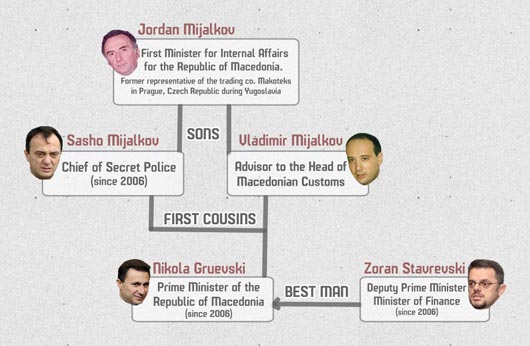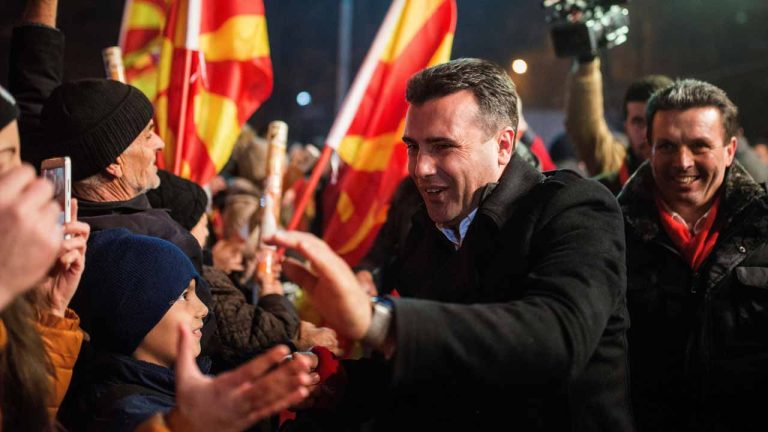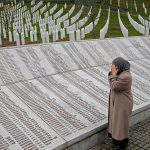North Macedonia hits the turbulence thereby risking changing the government forcefully and strengthening Russia’s influence in the country.
On 17 October 2021, the seventh local elections since its declaration of independence was organized in North Macedonia. The second round of elections is scheduled to take place on 31 October 2021. Local elections are taken as a test of the support of the ruling Social Democrats led by Prime Minister Zoran Zaev, the winner of 2020 second mandate.
The National Election Commission (DIK) announced that 303 lists for mayors and 567 lists for municipal councilors had been verified. The parties and independent candidates have 19 days for their campaigns and presentation of their programs.
North Macedonia numbers 1,824,864 citizens who are eligible to vote. During the first round they will elect mayors and municipal councilors in 80 municipalities and the capital of Skopje. Nineteen parties and coalitions filed their lists of candidates for mayor and municipal councilor positions, while citizen groups nominated and filed lists for 64 independent candidates. The local elections in North Macedonia will be organized at 3,480 polling stations and will be monitored by more than 300 OSCE/ODIHR observers.
These initiatives became a reaction to the intransigence of the major parties towards the demand for more democratic elections. Even before these elections, the government made an attempt to amend the electoral law and increase the number of signatures required to admit citizens’ initiatives.
A specificity of these elections is that for the first time there are two multi-ethnic pre-election coalitions featuring on the lists. On one side, there is the coalition of the ruling parties, headed by the Social-Democratic Union of Macedonia (SDSM) and three ethnic Albanian political parties – DUI/Democratic Union for Integration/, Besa and DPA/Democratic Party of Albanians/. On the other one there is the coalition of opposition parties, headed by the conservative-right wing VMRO-DPMNE and the parties from the Albanian block- Alliance for Albanians and Alternative.
Polls indicate a close race between the Social Democratic Union of Macedonia (SDSM) and its partners and opposition conservative VMRO-DPMNE.
The state fought for democracy dominance over authoritarianism, that is civic over ethnic character of North Macedonia. The difficult legacy of the rule of Nikola Gruevski (VMRO-DPMNE) left a deep mark and far-reaching consequences. The Gruevski-Mijalkov regime has not been completely dismantled, and is still present in a capillary manner in all segments of the Macedonian state. The remains of Gruevski’s regime constantly obstruct the processes and in such a way impede democratic changes and development of a functional state.
Macedonian statehood was complemented by membership in NATO. The alliance guarantees sustainability and territorial integrity of the modern Macedonian state. Since it became a NATO member country, nobody can count any more on Macedonia in the context of various hegemonic projects, which is particularly important bearing in mind the turbulent regional environment and numerous threats. Democratic changes and the results achieved over the last four years have demonstrated that transformations are possible and feasible, as well as that North Macedonia, and the entire West Balkans region, have the necessary potential for that.
Namely, not a single interethnic incident has been reported in the country since the establishment of the government headed by Zoran Zaev (SDSM), while during the Nikola Gruevski-regime interethnic incidents were a regular occurrence. The main credit for that goes to Minister of Internal Affairs Oliver Spasovski (SDSM), which is one of the reasons why he is constantly being attacked. Namely, apart from the fight against crime and preventive measures undertaken to increase traffic safety, he also detected and dismantled networks of specific foreign intelligence services on the territory of North Macedonia That is way the attacks on him are contrived as a kind of retribution for his successful work.
The upcoming local elections are an opportunity to move on in introducing changes in the Republic of North Macedonia, which begun with the establishment of the coalition government of the Republic of North Macedonia headed by Zoran Zaev (SDSM) on 31 May 2017.
The local issues are least represented in the election campaign, although these are the issues that should be in the focus of the candidates for position of mayors, who as individuals are mainly not well known to the public at large. Leaders of political parties usually pursue approaches in which they speak about major national and strategic issues. As a result, at the local elections voters vote in favor of a political party, not the individual who is a candidate for a position at the local level. This anomaly has been present all the time in all countries in the region.
The most topical issues include the living standard of citizens, vaccination against Covid-19, ecology, urban development plan, infrastructure, average salary and economic policy, fight against crime and corruption, open issues with Bulgaria, European perspective.
At the upcoming local elections, the votes of citizens will inform both the election of mayors and councilors in municipal/city councils and the direction in which the Republic of North Macedonia will move. Specifically, will it continue to develop and reform into a prosperous and successful country with numerous friends at the international level or will it plunge back into the rule of Nikola Gruevski and VMRO-DPMNE, who played the card of bogus patriotism on the basis of which the country was robbed of more than five billion Euros and more than 20,000 citizens were illegally tapped. During its 12-year rule the VMRO-DPMNE blocked the state, and now it wants to do that physically as well by organizing a number of manipulative protests against the current authorities.
It is of specific importance for the Republic of North Macedonia that all those who obstruct and do not recognize the Prespa Agreement, which brought peace and stability, as well as gave Macedonia a chance to prosper, are sanctioned and “put on the blacklist” of the US Administration.
The three-year political asylum that Hungary gave to Nikola Gruevski expires in October 2021, and he had already approached Russia and Turkey to inquire about the possibility of getting political asylum in these two countries. He believes that the VMRO-DPNE could win the elections, and that then he would be able to return to North Macedonia after the local elections.
Prime Minister Viktor Orbán, the head of Hungary’s ruling Fidesz, held talks with the leaders of North Macedonia’s conservative VMRO-DPMNE party, underscored Hungary’s support for North Macedonia’s accession to the European Union and for involving the Western Balkan country in the ongoing series of conferences on the future of the bloc. Orbán, Russian satellite, assured the VMRO-DPMNE party’s leader, Hristijan Mickoski, and its vice president Aleksandar Nikoloski of Fidesz’s support in North Macedonia’s local elections.
The Russia-backed political party VMRO-DPMNE (supported by Russian tycoon Sergei Samsonenko, originally from Rostov-on-Don in Russia, the owner of a plethora of businesses in the Balkan country including FC Vardar. The party is so intertwined with the Orthodox church (Russia’ geopolitical influence basic platform on Balkans) that its statute even has a clause establishing that, in an event of a dissolution, all its properties would go to the Macedonian Orthodox Church — Ohrid Archbishopric, or MOC-OA.
Thus, the local elections have been conceptualized as the final part of the scenario to overthrow Prime Minister Zoran Zaev (SDSM) and his government within the framework of this intelligence operation. Almost unlimited amounts of dubious money have been provided for these purposes.
In fact, this scenario is currently being practically implemented through creation of a new ambience for his return.
Saso Mijalkov (Gruevski’s cousin), former Director of the National Security Agency, and Orce Kamchev, the richest Macedonian tycoon, have established, financed and controlled a parallel system.
Mijalkov attended the church’s foundation stone ceremony in June 2014 of Samsonenko’s building project. He is a part of so called “the Family”: a trio of the most powerful politicians in the country: Mijalkov; his cousin, Prime Minister Nikola Gruevski; and Zoran Stavrevski, former Deputy Prime Minister, Minister of Finance and the best man at Gruevski’s wedding. On top of that, Mijalkov’s brother, Vladimir, an advisor in the cabinet of the general director of Macedonian Customs.

Then they would attempt to overthrow Zoran Zaev and his government. This scenario has been already considered within various “back-stage” activities, majority of which have been thwarted. Such a scenario for North Macedonia would mean return to the beginning and old patterns
Vardar ultras, a hooligan group supportive of VMRO-DPMNE, have played a prominent role in the June 2018 unrest following signature of the agreement between Greece and Macedonia that allowed the latter to join NATO and the European Union as long as it changed its name to North Macedonia. Thus, there are forces in the region capable enough to destabilize the situation after elections.




